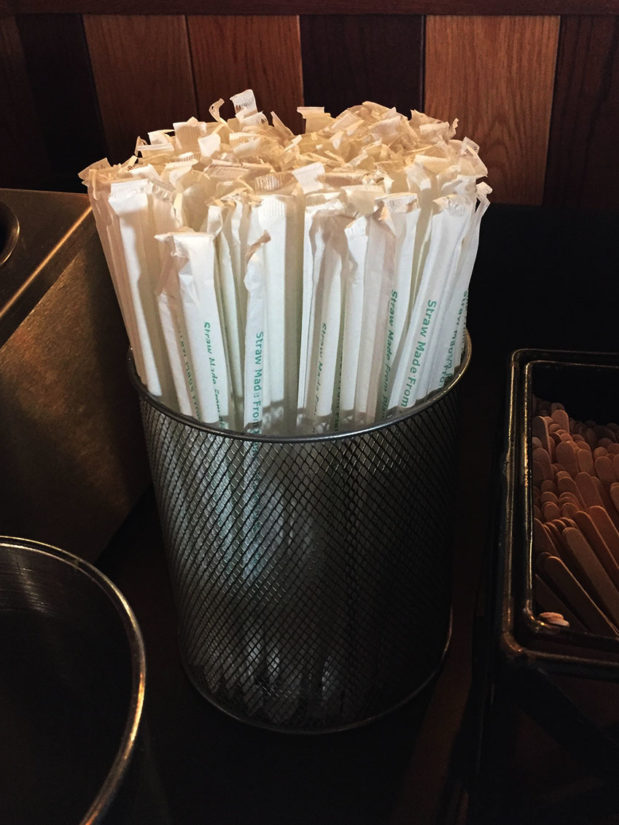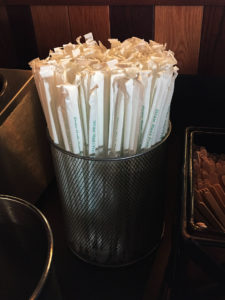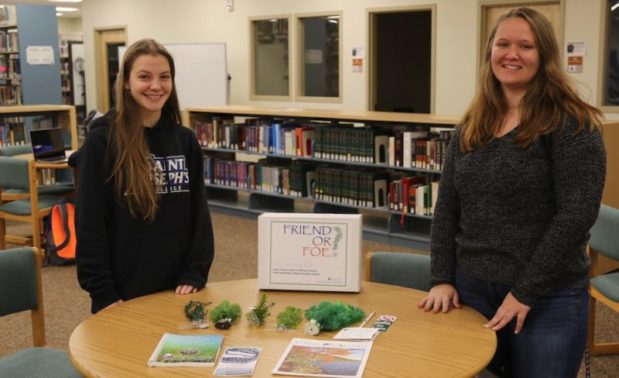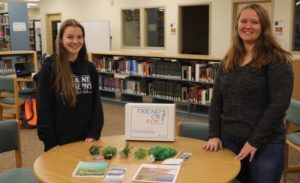Saint Joseph’s College has been recognized by The Princeton Review for its environmental responsibility. The education services company known for its test prep and tutoring services, books, and college rankings features Saint Joseph’s College in the 2018 edition of its book, The Princeton Review’s Guide to 399 Green Colleges. Sustainability at Saint Joseph’s College encompasses human and ecological health, social justice, secure livelihoods, and a better world for future generations. Building and modeling sustainability practices cultivates an ethic of sustainability among graduates and the broader campus community, reflective of the College’s core values and the Sisters of Mercy’s Critical Concern for Earth. All students at Saint Joseph’s are required to take a course called Ecology and the Environmental Challenge.
The Princeton Review developed the ranking list using data from its institutional survey for its Green Rating and its surveys of student attending the colleges. Ten data points from the institutional survey were factored into the assessment. Data from the student survey included student ratings of how sustainability issues influenced their education and life on campus; administration and student support for environmental awareness and conservation efforts and the visibility and impact of student environmental groups.
Through the College’s new Institute for Local Food Systems Innovation (ILFSI), students can grow lettuce, radishes, tomatoes, edible flowers, and spring mix year-round in a Freight Farm—an indoor hydroponics growing facility inside the body of a freight truck. Additionally, a hydroponic greenhouse, 3,400 square foot community kitchen, and livestock barn will offer agricultural and food industry programming. ILFSI is designed to support New England’s capacity to produce at least 50% of food consumed, help double the region’s food manufacturing employment over ten years, and provide critically needed workforce training through courses and certificates in hydroponics, food manufacturing, food branding and merchandising, and agritourism.
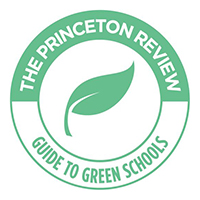

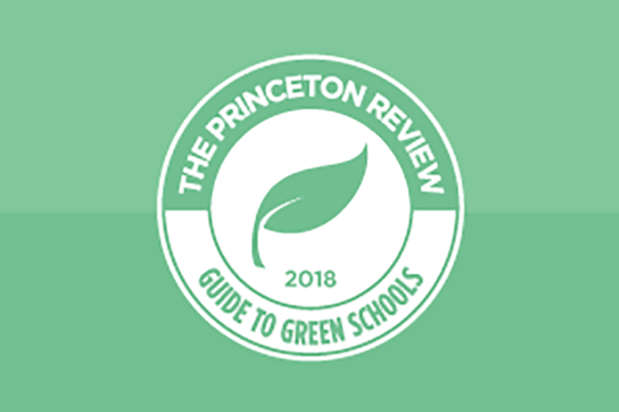
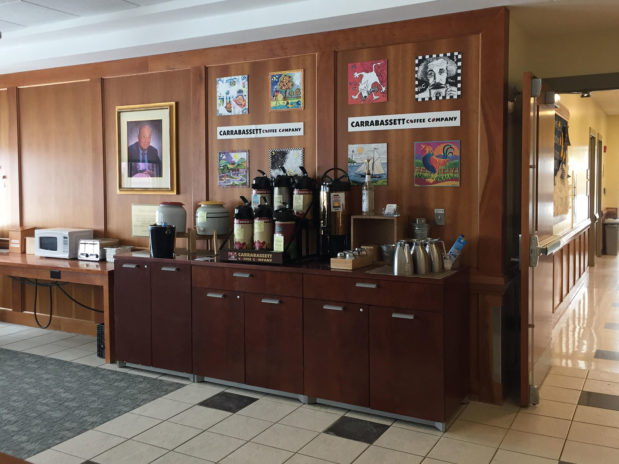
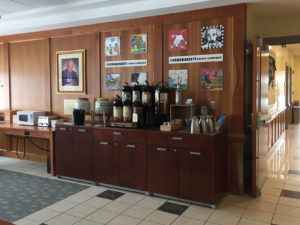 In an effort to reduce single-use cups, Brewed Awakenings (the College’s coffee station located in Alfond Hall) now offers free coffee to students and employees who bring their own reusable cups. Faculty and staff members are also offered free coffee in Pearson’s Dining Hall if they bring a reusable cup. This initiative aims at reducing the number of individual coffee-makers operating in offices across campus and efforts are underway to eliminate all K-Cup Pods, which are not only expensive but are extremely harmful to the environment. By offering coffee in communal spaces, students and colleagues are encouraged to step away from their desks for a short break, stretch, and fuel up!
In an effort to reduce single-use cups, Brewed Awakenings (the College’s coffee station located in Alfond Hall) now offers free coffee to students and employees who bring their own reusable cups. Faculty and staff members are also offered free coffee in Pearson’s Dining Hall if they bring a reusable cup. This initiative aims at reducing the number of individual coffee-makers operating in offices across campus and efforts are underway to eliminate all K-Cup Pods, which are not only expensive but are extremely harmful to the environment. By offering coffee in communal spaces, students and colleagues are encouraged to step away from their desks for a short break, stretch, and fuel up! 